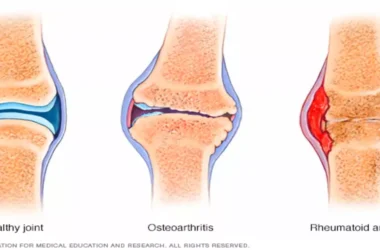[ez-toc]
Introduction
In today’s fast-paced and hectic world, mindfulness and meditation have gained significant popularity as effective practices for promoting emotional well-being.
While these practices are beneficial for individuals of all ages, they hold particular importance for seniors. As people age, they may face various challenges that can impact their emotional health.
Mindfulness and meditation offer valuable tools to navigate these challenges, cultivate inner peace, and enhance overall well-being.
This article explores the benefits of mindfulness and meditation for seniors, providing insights into how these practices can contribute to their emotional well-being.
Understanding Mindfulness and Meditation
What is Mindfulness?
Mindfulness is the practice of being fully present in the current moment, intentionally and without judgment. It involves paying attention to one’s thoughts, feelings, bodily sensations, and the surrounding environment.
By cultivating mindfulness, individuals develop a heightened sense of self-awareness and gain a deeper understanding of their inner experiences.
Exploring Meditation
Meditation is a technique that focuses the mind and induces a state of calm and relaxation. It involves directing one’s attention to a specific object, such as the breath, a mantra, or a visualization.
Through regular meditation practice, individuals can train their minds to become more focused, calm, and resilient.
Importance of Emotional Well-being for Seniors
Emotional well-being plays a crucial role in the overall health and quality of life of seniors.
As individuals age, they may encounter various life transitions, including retirement, loss of loved ones, and declining physical health.
These changes can give rise to emotional challenges such as stress, anxiety, and feelings of loneliness.
Also Read: Chest Exercises for Relieving Tension and Improving Range of Motion
Nurturing emotional well-being is essential for seniors to maintain a positive outlook on life and enjoy their golden years to the fullest.
Benefits of Mindfulness for Seniors
Reducing Stress and Anxiety
Mindfulness practice has been proven to reduce stress levels and alleviate symptoms of anxiety.
By training the mind to focus on the present moment, seniors can cultivate a sense of calm and serenity, enabling them to manage stress more effectively.
Enhancing Cognitive Function
Regular mindfulness practice has shown promising results in enhancing cognitive function, including memory, attention, and decision-making abilities.
Seniors who engage in mindfulness exercises may experience improved mental clarity and overall cognitive well-being.
Promoting Emotional Resilience
Mindfulness helps seniors develop emotional resilience, enabling them to navigate life’s challenges with greater ease.
By observing their thoughts and emotions without judgment, seniors can cultivate a more compassionate and accepting attitude toward themselves and others.
Benefits of Meditation for Seniors
Managing Chronic Pain
Seniors who experience chronic pain can find relief through meditation. By redirecting their attention away from pain and towards a focused meditation object, such as the breath, seniors can experience a reduction in pain intensity and an improved ability to cope with discomfort.
Improving Sleep Quality
Sleep disturbances are common among seniors, often due to factors such as stress, anxiety, and physical discomfort. Meditation promotes relaxation and helps calm the mind, making it easier for seniors to fall asleep and enjoy restful nights.
Boosting Mood and Happiness
Meditation has been associated with increased levels of happiness and overall well-being. By engaging in regular meditation practice, seniors can experience a positive shift in their mood, leading to a greater sense of contentment and fulfillment.
How to Incorporate Mindfulness and Meditation Into Daily Life
Starting with Mindful Breathing
Seniors can begin their mindfulness journey by practicing mindful breathing. This simple technique involves focusing attention on the breath, observing each inhalation and exhalation without trying to change anything.
By dedicating a few minutes each day to mindful breathing, seniors can anchor themselves in the present moment and cultivate a sense of inner calm.
Engaging in Guided Meditations
Guided meditations provide seniors with structured support as they explore meditation. Various apps and online platforms offer a wide range of guided meditation sessions specifically designed for seniors.
These guided practices help seniors navigate the meditation process and deepen their experience.
Joining Mindfulness Programs and Classes
Seniors can benefit from joining mindfulness programs and classes tailored to their specific needs. These programs provide a supportive environment where seniors can learn and practice mindfulness alongside others.
Instructors guide participants through various meditation techniques and offer valuable insights into integrating mindfulness into daily life.
Overcoming Challenges and Obstacles
Addressing Physical Limitations
Seniors with physical limitations can still engage in mindfulness and meditation practices. Adaptations can be made, such as practicing seated meditation or exploring gentle movement-based mindfulness exercises like Tai Chi or Qi Gong.
It is essential for seniors to listen to their bodies and modify their practices to suit their unique circumstances.
Dealing with Restlessness and Impatience
Restlessness and impatience can arise during meditation, especially for beginners. Seniors can approach these challenges with self-compassion and patience, understanding that meditation is a skill that develops over time.
By gently acknowledging these feelings and refocusing their attention, seniors can overcome restlessness and cultivate a more peaceful state of mind.
Cultivating a Consistent Practice
Consistency is key when it comes to mindfulness and meditation. Seniors should strive to establish regular practice, even if it starts with just a few minutes each day.
By making meditation a part of their daily routine, seniors can experience the long-term benefits and develop a deeper connection with their inner selves.
Mindfulness and Meditation Techniques for Seniors
Body Scan Meditation
Body scan meditation involves systematically directing attention to different parts of the body, bringing awareness to sensations, and releasing tension. This practice promotes relaxation, body awareness, and a sense of grounding for seniors.
Loving-Kindness Meditation
Loving-kindness meditation cultivates feelings of love, compassion, and well-wishes towards oneself and others. Seniors can engage in this practice to foster positive emotions, strengthen social connections, and enhance their overall well-being.
Walking Meditation
Walking meditation allows seniors to combine mindfulness with physical movement. It involves paying close attention to the sensations of walking, such as the feel of the ground beneath the feet and the rhythm of each step.
Walking meditation can be done outdoors or indoors, providing seniors with gentle exercise for both the body and the mind.
Mindful Eating
Mindful eating encourages seniors to savor each bite and fully engage their senses during meals.
By paying attention to the taste, texture, and aroma of food, seniors can develop a healthier relationship with eating and foster a greater sense of satisfaction and gratitude.
Creating a Supportive Environment
Engaging in Group Activities
Seniors can benefit from engaging in group activities that promote mindfulness and meditation. Community centers, senior centers, and wellness organizations often offer group classes and workshops specifically designed for seniors.
These activities not only provide a sense of community but also offer opportunities for seniors to learn from and support one another on their mindfulness journey.
Seeking Professional Guidance
Seniors who wish to deepen their mindfulness and meditation practice may consider seeking professional guidance.
Mindfulness-based therapy, counseling, or working with a qualified meditation teacher can provide personalized support and guidance tailored to the unique needs of seniors.
Cultivating a Mindful Living Space
Creating a mindful living space can support seniors in their mindfulness practice. This involves organizing their environment in a way that promotes relaxation and peace, incorporating elements such as calming colors, natural light, and comfortable seating areas.
Seniors can also include reminders of their mindfulness practice, such as inspirational quotes or objects that hold personal significance.
The Role of Mindfulness and Meditation in Healthy Aging
Mindfulness and meditation play a significant role in promoting healthy aging. By cultivating emotional well-being, managing stress, and enhancing cognitive function, seniors can enjoy improved overall health and a higher quality of life.
The regular practice of mindfulness and meditation empowers seniors to navigate life’s challenges with resilience, embrace the present moment, and nurture their emotional well-being.
Conclusion
Mindfulness and meditation offer powerful tools for seniors to promote emotional well-being and navigate the complexities of aging.
By incorporating these practices into their daily lives, seniors can reduce stress, enhance cognitive function, manage chronic pain, improve sleep quality, and boost their overall mood and happiness.
It is essential for seniors to explore different techniques, overcome obstacles, and create a supportive environment that fosters their mindfulness journey.
With dedication and practice, seniors can cultivate a deep sense of inner peace and enjoy the many benefits that mindfulness and meditation bring to their lives.






